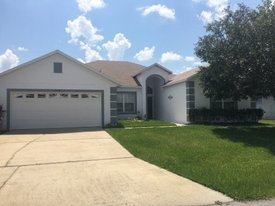
Sabrena's Retirement Resort, Inc
2325 North Hastings Street, Orlando, FL 32808
Call 1-855-287-5093 for details
The average cost of assisted living in the city is $3,275 a month. This guide is a starting point covering the cost of assisted living care in the city, as well as financing options to pay for it. You’ll find in-depth information on 7 Assisted Living Communities in Saint Cloud and several in surrounding areas. The Cost of Senior Care in Saint Cloud, FL

2325 North Hastings Street, Orlando, FL 32808
Call 1-855-287-5093 for details

516 Brentford Court, Kissimmee, FL 34758
Call 1-855-287-5093 for details
"______________________________________ Welcome to Golden Age Senior Living at Brentford. Our inviting senior living community offers reside..."
READ MORE


"Owned by Chris and Lisa Smith. Lisa is an RN with over 20 yrs exp. in Orlando. Our caregivers provide loving assistance with all Activities ..."
READ MOREBy clicking "Get Costs" I am providing express written consent to receive calls including automated/pre-recorded calls and automated texts for which I may incur a cost, as well as emails from Caring and its partners. I understand I am not obligated to provide this consent to utilize Caring’s service(s). I acknowledge I was able to review the Agreement to be Contacted, Terms of Use, and Privacy Policy.

1120 WEST DONEGAN AVENUE, Kissimmee, FL 34741
Call 1-855-287-5093 for details

3619 Rothbury Drive,, Orlando, FL 32812
Call 1-855-287-5093 for details
"At Bridgeport Senior Living, we believe that there is a better way to provide dementia care than the traditional "institutional model" and w..."
READ MORE
"Red Bug Lake Manor is located in the Orlando suburb of Casselberry, Florida, just minutes from Red Bug Lake Park and the shops of Red Willow..."
READ MORE
409 SOUTH 10TH STREET, Haines City, FL 33844
Call 1-855-287-5093 for details

5357 Brosche Road, Orlando, FL 32807
Call 1-855-287-5093 for details
"Welcome to Lakeview Manor Assisted Living Community. Our inviting senior living community offers residents the comfort and convenience of a ..."
READ MORE
"______________________________________ Welcome to Harmony Retirement Living. Our inviting senior living community offers residents the comf..."
READ MORE
2.0
(1)
"_________________________________________ Offering gracious and comfortable assisted living, Green Leaf of Kissimmee (formerly All Seasons ..."
READ MORE

"Golden Cove Assisted Living is a small board and care home with a maximum 6-bed capacity located in Orlando Florida. We offer a relaxing hom..."
READ MORE

"Silver Crest Home is a locally owned assisted living care home with 6 residents. Silver Crest Home is located in a beautiful quiet neighborh..."
READ MORE


"Located just off Interstate 4 in Winter Park, Florida, Summer Time Retirement is close to a variety of shopping and dining opportunities, in..."
READ MORE
"Haines Manor ALF offers assisted living and memory care. We offer more than just a beautiful place to live. We offer a lifestyle that embrac..."
READ MORE
350 WEST HAINES BLVD, Lake Alfred, FL 33850
Call 1-855-287-5093 for details

"At Eden Manor, our goal is to provide our residents with the best in senior living. Our high quality care and dedicated staff ensure that th..."
READ MORE
4934 Seminole Ave., Winter Park, FL 32792
Call 1-855-287-5093 for details
"Marie's Manor Assisted Living Facility in Orlando offers the amenities you expect, the kindness you deserve and a price you'll appreciate. W..."
READ MORE

533 Bristol Cr, Kissimmee, FL 34758
Call 1-855-287-5093 for details
"____________________________________________ Welcome to Golden Age Senior Living Care of Bristol. Our inviting senior living community offe..."
READ MORE
10298 Savannah Park Drive, Orlando, FL 32832
Call 1-855-287-5093 for details

"At Parkway Terrace Assisted living facility, we strive to ensure the safety and comfort of our residents while providing them with a homey e..."
READ MOREGenworth’s 2018 Cost of Care study examined senior care costs throughout the county. The study shows that at $3,275 per month, the average monthly cost of assisted living in Saint Cloud is below the state ($3,500) and national ($4,000) averages.
Prices are higher in many nearby areas, such as Deltona ($3,850), Palm Bay ($3,750) and The Villages ($5,031), and lower in Lakeland ($2,808), which has the lowest assisted living costs in the state.
Note: Senior care cost data wasn’t available for Saint Cloud, so data for the closest city, Orlando, was used.
Saint Cloud/Orlando Area
$3,275
National Average
$4,000
State Average
$3,500
Deltona
$3,850
The Villages
$5,031
Lakeland
$2,808
Palm Bay Area
$3,750
Gainesville
$3,775
Miami
$3,350
In Saint Cloud, senior care costs are based on the type of care provided. At an average of $8,106 per month for a semiprivate room, a nursing home costs more than double what assisted living does. This price difference is based on the fact that nursing facilities provide around-the-clock nursing care to seniors who have complex medical needs. Seniors who are considering remaining in their home can expect to pay $4,004 per month for a homemaker or home health aide in addition to regular living expenses. By comparison, assisted living costs an average of $3,275 per month and includes room and board.
Assisted Living
$3,275
Homemaker Services
$4,004
Home Health Aide
$4,004
Adult Day Health Services
$1,300
Nursing Home Care
$8,106
Established on July 30, 1965 by the federal government, Medicaid is the nationwide health coverage program for individuals with low income, including children, adults with disabilities and the elderly. It provides coverage for essential health services, such as primary physician care, hospitalization, emergency and long-term care.
Medicaid is administered at the state level, and each state has the option to provide additional, optional benefits through state-specific Medicaid waivers and programs.
In Florida, seniors aged 65 and older who collect Supplemental Security Income benefits are automatically eligible for SSI-Related Medicaid coverage and only need to complete further screening when requesting long-term care services.
Qualifying for Florida Medicaid
All other seniors must meet income, asset and residency guidelines as follows:
Optional State Supplementation
Seniors who receive Supplemental Security Income benefits and need to reside in assisted living may qualify for financial assistance through the Optional State Supplementation Program.
OSS provides cash benefits to help seniors pay the room-and-board portion of their assisted living costs. Individuals may qualify for up to $78.40 per month and couples up to $156.80 in SSI top-up funds through the OSS program.
For more information on the OSS, contact ACCESS Florida at (866) 762-2237 or the Social Security Administration at (800) 772-1213.
VA Aid and Attendance and Housebound
Seniors who collect the basic VA pension and need money to pay for assisted living costs may qualify for additional cash benefits through the VA Aid and Attendance or Housebound Allowance. These two enhanced VA pension programs may also be available to applicants who were previously denied the basic VA pension due to excess income since eligibility for these programs is based on a higher income limit than the basic pension.
For Housebound, applicants must have a permanent disability rated at 100% that confines them to their home.
For Aid and Attendance, seniors must be blind, bedridden, reside in a nursing home, or need help from a caregiver to perform activities of daily living.
Successful applicants may only collect benefits from one of these two programs.
For more information and help with the application process, contact Osceola County Veterans Services at (407) 742-8455.
The Saint Cloud Senior Citizen Center operates a wide variety of social, recreational and wellness activities and events geared towards seniors in two locations. Seniors are welcome to join weekly dances, daily card games, quilting and gardening groups and monthly potluck dinners.
Saint Cloud Senior Citizen Center – Community House
3101 17th St., Saint Cloud, FL 34769
(407) 957-7392
Saint Cloud Senior Citizen Center – Community House
716 Indiana Ave., Saint Cloud, FL 34769
(407) 957-7392
Veterans, survivors and dependents can contact the Osceola County Veterans’ Services Office for help with local, state and federal benefits and entitlements. The County Veterans Service Officer is available in Saint Cloud every Thursday for walk-in appointments.
Outpatient primary, internal medicine and geriatric care services are available at the nearby Kissimmee VA Clinic.
Osceola County Veterans Services Office – Saint Cloud
810 13th St., Saint Cloud, FL 34769
(407) 742-8455
Kissimmee VA Clinic
2285 N. Central Ave., Kissimmee, FL 34741-2342
(407) 518-5004
Go a bit further out to explore pricing and amenities.
$6,000
$3,000
$4,275
$2,951
Senior Homes has an extensive directory of senior living options, with care and living providers across the United States.
By clicking "Get Costs" I am providing express written consent to receive calls including automated/pre-recorded calls and automated texts for which I may incur a cost, as well as emails from Caring and its partners. I understand I am not obligated to provide this consent to utilize Caring’s service(s). I acknowledge I was able to review the Agreement to be Contacted, Terms of Use, and Privacy Policy.